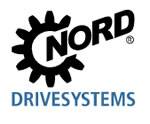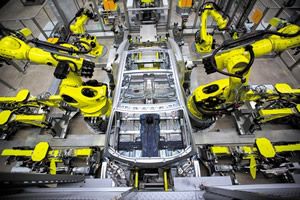The Role of Big Data in Industrial Manufacturers' Growth
The world of industry has been steadily advancing since the beginning of the Industrial Revolution, and this new move toward data-driven manufacturing strategy is simply the next step in revolutionizing the industry.
Reining in on industrial automation: The benefits of cloud computing in the manufacturing industry
By embracing the cloud, manufacturers no longer simply collect data but instead, gain actionable insights from it. Whether its for quality improvement, sales forecasts or preventative maintenance, predictive analytics or machine learning can give manufacturers an edge over their competitors and possibly, a complete new service to sell.
IoTium Delivers Industry's First Secure, Scalable, Network Infrastructure for Industrial IoT
IoTium's Managed Service Offering Transforms Mission Critical Industrial Environments to Accelerate the Mass Deployment of Industry 4.0 at Scale
Smart manufacturing must embrace big data
Andrew Kusiak for nature: Manufacturing is getting smart. Companies are increasingly using sensors and wireless technologies to capture data at all stages of a product's life.
Five steps to enabling a data-driven, smart factory
Alun Williams for ElectronicsWeekly: he top strategic objectives in the manufacturing industry have remained consistent for years, with many centered on serving customers.
Industrial companies want to deliver customers high quality products, on time, at a globally competitive cost. They also want to be able to flex production capabilities up and down as needed to quickly introduce new products to the marketplace.
Pairing physical assets with intelligent gateways to gather, analyze and communicate data is driving enormous new efficiencies in manufacturing and business operations.
New operational efficiencies enabled by IoT are generating significant returns in manufacturing. Cont'd...
Why 2017 is the year integration enables Industry 4.0 growth
Louis Columbus for CloudTech: Having attained initial results from Industry 4.0 initiatives, many manufacturers are moving forward with the advanced analytics and Big Data-related projects that are based on real-time integration between CRM, ERP, 3rd party and legacy systems. A recent Price Waterhouse Coopers (PwC) study of Industry 4.0 adoption, Industry 4.0: Building The Digital Enterprise (PDF, no opt-in, 36 pp.) found that 72% of manufacturing enterprises predict their use of data analytics will substantially improve customer relationships and customer intelligence along the product life cycle. Real-time integration enables manufacturers to more effectively serve their customers, communicate with suppliers, and manage distribution channels. Of the many innovative start-ups taking on the complex challenges of integrating cloud and on-premise systems to streamline revenue-generating business processes, enosiX shows potential to bridge legacy ERP and cloud-based CRM systems quickly and deliver results.
There are many more potential benefits to adopting Industry 4.0 for those enterprises who choose to create and continually strengthen real-time integration links across the global operations. Cont'd...
Industry 4.0: Cloud driving the rise of machines
From BizCommunity: The technologies defining the 'Fourth Industrial Revolution', more commonly referred to as Industry 4.0, are being powered by cloud infrastructures. The Oracle Cloud: Opening up the Road to Industry 4.0 report has found that from robotics to artificial intelligence, businesses view the cloud as a blank canvas upon which to build their innovation strategies.
[Industry 4.0: Cloud driving the rise of machines] The research investigated how companies in EMEA are managing the transition to Industry 4.0 and sheds light on which technologies they are investing in to continue succeeding in the data-driven age.
The majority of businesses are currently implementing, or plan to implement new innovation strategies:
• 62% have or plan to implement robotics technology
• 60% have or plan to work with artificial Intelligence
Most companies also recognise a cloud infrastructure is required to bring these technologies to life – 60% believe an enterprise cloud platform provides the opportunity for organisations to capitalise on innovation such as robotics and artificial intelligence. Cont'd...
Records 31 to 37 of 37
Featured Product

NORD Delivers Powerful, Reliable Drive Solutions for Demanding Packaging Applications
When you need quality, flexibility and high efficiency, NORD has you covered with complete drive solutions for primary and secondary packaging, end-of-line packaging, and higher-level applications. NORD supports you through the entire life cycle of your drive systems with pre-sales engineering support, online tools, and a global service network. Drive systems for both vertically and horizontally networked technology with all the options for sensor incorporation and integration into the higher-level control system.
Manufacturing and Automation - Featured Company

NORD DRIVESYSTEMS
With four production facilities in the Midwest, on both coasts, and in the South, NORD is prepared to serve you with some of the shortest lead times in the industry. We house extensive component inventory, allowing us to assemble and ship 25% of all standard product orders same or next day!







